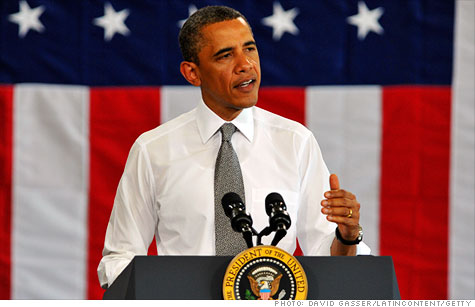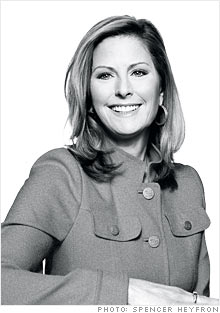
FORTUNE -- In February of 2009, with Barack Obama barely a month in office, Newsweek declared "We are all socialists now." The most interesting part: its matter-of-fact tone, asserting that as boomers age and spending grows, Americans were turning, well, French. A bit tongue-in-cheek, maybe, but it's worth noting that, as it turns out, we're not all Euro-socialists. Not even close. The rise in federal spending from 21% to nearly 25% of the economy in just two years has contributed to an angry backlash -- leaving Americans more, not less, divided about government's proper role in our lives.
In the summer of 2004, little-known Illinois Senator Obama first captured the public's imagination with eloquent pleas for national unity. But the fireworks this Fourth of July more closely resemble the old days of democracy when Thomas Jefferson, James Madison, and Alexander Hamilton engaged in down-and-dirty debates over government's reach. As the 2012 election approaches, one camp says Washington is strangling the free-market economy. The camp on the left views Washington as the grand savior from destructive free-market greed. Exactly half of us think government is too big, and 55% think it's always wasteful, says the Pew Research Center. Pew also concludes that Americans are more doctrinaire, more hardened in their views, especially over this question: "Should government do more to help the needy even if it means bigger deficits?"

The noise level that accompanies this divide makes it hard to have a sane conversation about how to shape a 21st-century government that most of us can agree on. Take business leaders: Many hate the costs associated with Obama's health care reform and new environmental and banking regulations. But they also say Washington needs to lead the way in rebuilding the nation's infrastructure and tapping energy sources that will stabilize prices -- or American companies will have trouble competing globally.
Likewise, average citizens are rightly shocked by the levels of public debt weighing down the economy -- and their tax-paying children. According to the President's National Commission on Fiscal Responsibility and Reform (headed by Democrat Erskine Bowles and Republican Alan Simpson), debt held by the public will outstrip the entire American economy, growing to as much as 185% of GDP by 2035 -- with hundreds of billions of dollars doing nothing but servicing debt. Despite those numbers, conversations about how to reduce the exploding costs of entitlements -- like Medicare -- are swamped by screaming political rhetoric, with little hope of compromise.
The growth of government has also provoked emotionally charged questions of fairness. Liberals believe the wealthy are obligated to pony up more in taxes to cover exploding deficits; conservatives point to the 47% of (not wealthy) people who pay no federal income taxes -- and therefore have no skin in the game -- and the nearly 70% who take more in benefits than they pay in taxes. Public anger over bank bailouts was as much about fairness as the billions of dollars spent. And government mortgage supports that liberals say are the only fair response to the power of big banks actually sprouted the first roots of a Tea Party movement that asked: Why should taxpayers keep people in homes they shouldn't have bought in the first place?
A fairness divide has emerged over public-private employment too. Government jobs pay better (the number of federal jobs paying more than $100,000 rose sharply in 2009 as the private sector collapsed), offer -- on average -- more generous pensions, and have been more insulated from the recession. Anger over this fairness question has exploded on the state level in the form of taxpayers warring with government unions.
Two centuries ago, the charges and countercharges between the camps supporting Jefferson and Madison on one side, and Hamilton on the other, were "brutal" and "monstrous," constituting "unmediated malice," notes historian Jay Winik. That era produced the nation's first political parties. It would be nice to think today's battles will produce something equally useful, but I wouldn't bet the nation's debt on it. ![]()
| Overnight Avg Rate | Latest | Change | Last Week |
|---|---|---|---|
| 30 yr fixed | 3.80% | 3.88% | |
| 15 yr fixed | 3.20% | 3.23% | |
| 5/1 ARM | 3.84% | 3.88% | |
| 30 yr refi | 3.82% | 3.93% | |
| 15 yr refi | 3.20% | 3.23% |
Today's featured rates:
| Latest Report | Next Update |
|---|---|
| Home prices | Aug 28 |
| Consumer confidence | Aug 28 |
| GDP | Aug 29 |
| Manufacturing (ISM) | Sept 4 |
| Jobs | Sept 7 |
| Inflation (CPI) | Sept 14 |
| Retail sales | Sept 14 |